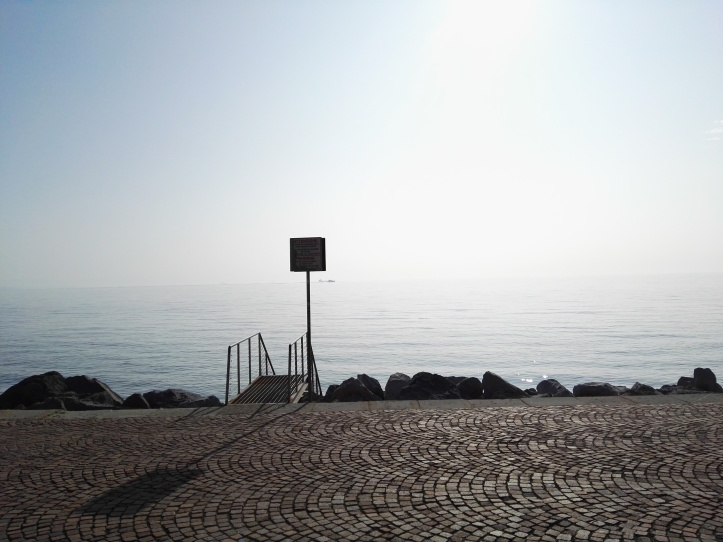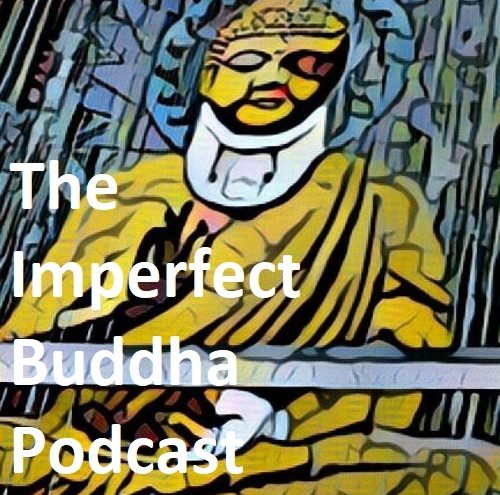
I recently had a piece I wrote for the Asian Medicine Journal published at their Asian Medicine Zone. It’s open access so you may like to take a look: It’s kind of personal & summarizes a lot of what I’ve done, am doing, and the work of the site & the podcast. It’s called “Modernity, Identity, and Contemporary (Non-) Buddhism.” If you manage to read it all, let me know what you think.
http://www.asianmedicinezone.com/religion-medicine/modernity-identity-contemporary-non-buddhism/

Great essay Matthew.Can imagine the work that went into it! So like my own experience, minus the coaching thing and plus some vicious Irish politics and horrible working class urban ghetto ruin. Or maybe you had the urban ruin thing too?
LikeLike
Hi Patrick,
It’s been a while! I grew up in relative poverty with a pretty shitty mix of dysfunction, alcoholism, crime and the rest. Maybe we have a lot more in common after all.
Matthew
LikeLike
Nice post Matthew!
It’s fascinating to reflect on what brings us to these paths, and what factors contribute to the twists and turns we inevitably take.
You mentioned wanting to cringe when you think back to your naive belief that the practices you engaged with in your earlier days were somehow ahistorical and bringing you in touch with some kind of timeless wisdom outside the hollowness of much of contemporary life. I think it’s essential to go through these phases. Sadly though, a fair few people stay stuck there. If not a majority!
The thing is, this is how these practices present themselves! As timeless truth. And it is good to have a certain amount of faith at first. It’s a bit like chatting to someone who starts going off on a tangent, or saying something you don’t understand. You might not get where they are going, but you give them a chance to see if it’ll all start to make sense after a minute or two. If you don’t, they will have no chance to develop their argument. But after a while, it becomes time to decide what you really think. And then to question that again and again and again. A holiday to an idyllic Thai island might make you want to move to that island forever. But will that happiness be sustained over time if you do so? Why think that the initial succour of spiritual practice is any different? We have an amazing capacity for homeostasis.
Reading Charles Eisenstein recently, he speaks of human history to date as a parallel of an addict’s journey. Every technological discovery seems like it is the cure we have been looking for. Agriculture. The steam engine. The car. The computer. The Internet. The smartphone. And at first, each one does clearly offer an amazing improvement on what came before. Just as that first drink, or snort of coke, or whatever, seems to do. Over time though, each generates its own problems. Email was so great that it became ubiquitous, and the result was more time dealing with mail than ever. Smartphones have immense power, unless we get seduced my mindless distraction, as most of us do.
Different ‘spiritual’ technologies seem to work in the same way. My first ten day meditation retreat was an incredibly powerful experience. I came out so chilled, so present, so joyful. Wow, this is what it feels like to be alive. I thought I had ‘solved’ my life. Yet, over time, the side effects surely emerge. A little less engagement with the everyday here, a little more spiritual superiority there…
Am I any better off 15 years later? Sometimes I’m not so sure.
I did a 60 day Mahasi retreat a few years ago that threw me on a bit of a tailspin. It would take more time than I have right now to go into the details of this. Daniel Ingram and co would probably put it down to leaving while still going through the phase of ‘dissolution/dark night of the soul’. I would put it down to realising that there was an immense amount of historically conditioned teaching passing itself off as timeless wisdom. Not to mention the mass of contradictions within the Buddhist canon, the commentaries, Therevada, Mahayana etc. And even more not to mention that spiritual teachers, whether self-annointed or stamped with the seal of approval of a tradition, often seem just as flawed and neurotic as the rest of us…
The nagging doubt all this induced brought me into a period of deep reading and analysis. Like you, I got immense benefit from reading adademic books on Buddhism. I also read a selection of more contemporary dharma books. In the past few years I’ve been seduced again and again by various ideas in these, often only to find myself a few months later thinking, ‘Wow, I now totally disagree with that!’ As you say, this can be a very uncomfortable place to find yourself, but I think it is necessary, and I look forward to seeing where it takes me.
Here are a few observations based on what I currently think:
How honest can teachers be about the limitations of the practice? Even if well-meaning, once placed in a position of authority, how many find ways to lie even to themselves about their progress? The greater the Master’s reputation, the more time invested, the harder it is to admit that you are still ‘human, all too human’. The greater the stakes, the more powerful cognitive dissonance becomes.
Tom Pepper is bang on the money about the tendency of Buddhists to deny atman only to let it in again through the back door. But once we have let go of beliefs in finding the ‘unconditioned’, is there anything left in Buddhist practice that can’t be found in other practices? As Sloterdijk says, there is really no such thing as religion, just a range of more-or-less self-aware, and more-or-less effective, practices that we engage in, individually or culturally, to immunise ourselves against life’s vicissitudes.
If there is such a thing as ‘enlightenment’, in however limited a way we might view that, is it actually in any way to do with insight, with seeing things as they are? Is it perhaps more likely that it is caused by physiological changes brought about through profound changes in breathing, for example? See Wim Hoff, the Buteyko method etc, which claim to bring about similar effects on relaxation / alertness / meta-awareness / skillful action / / self-mastery / (more) freedom from reactivity, and so on, without any notions of having achieved this through insight into reality.
Even if we assume that the Buddha, as presented in the texts, ever existed, and even if we assume that he did attain some kind of ‘liberation’, why believe that his own understanding of the nature of that liberation, and of the path that others could follow to attain it, was not conditioned by his own historical and psycho-physical conditioning?
A happy person tends to smile a lot. Which came first, the chicken or the egg?
LikeLike
Hi Gavin,
What a thoughtful post. It’s nice to know there are others out there thinking critically and
intelligently on these matters. I agree with much of what you write and find the issue of ‘means and ends’ a fascinating one, especially because it disrupts the certainties of theory and the lazy retreat to abstract intellect. What helps people change or provides a socially acceptable avenue towards change, discovery and new thought may not always be in their best interests long-term, but without it, a journey may never begin.
The points you share concerning the 60 day retreat are interesting and many need more of a public airing: That’s a whole set of blog posts right there.
That seduction you speak of takes time to fully disavow: at least it did in my case. One thing that helped was seeing how much western Buddhism is an off-shoot of western New Age Spirituality. Glenn’s writing on the seductive nature of Buddhism is highly pertinent and if I recall correctly, he refers to it as loss of charisma. A couple of principles I found personally useful were removing the transcendent properties of all the practices, teachings and ideals I continued to find attractive, treating my desire for magic, for that extra whatever, as an object to deconstruct in meditation and releasing any desire to boost, enhance, transcend. Topping that off with a serious engagement with the SNB blog and the consequences of much of their destruction of the salvic fantasy.
As for enlightenment, I did write about it some years back. It’s dated and I’ve moved on but there are a couple of good ideas in there. I think it needs salvaging beyond tradition and beyond Buddhism as a counter to the dull, middle-class pursuit of wellness/well-being:
https://posttraditionalbuddhism.com/2015/06/15/reconsidering-enlightenment-a-post-traditional-reconfiguration-of-enlightenment/
One reason I plug away at this blog, the podcast, and the coaching work I do is because I believe strongly that alternatives to the status quo of ideological identification need to be available for those few who do remember to dust off their critical faculties after a few years in the spiritually smug landscape. I do believe that Buddhism holds some rather unique tools that once situated in a wider purview of personhood, spirituality (whatever we might decide that is), and growth and change, become renewed means for phenomenological exploration that can act to bridge the individual to wider, historically situated concerns.
BTW, an upcoming guest to the podcast should have something to contribute on these matters.
Matthew
LikeLike